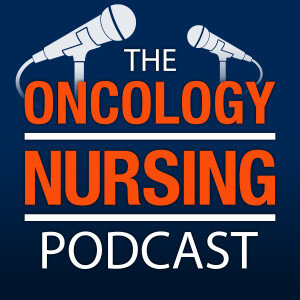
Episode 266: Create a Culture of Safety: Reporting Culture
 2023-06-30
2023-06-30
“We need to continue to remind everyone that reporting culture improves safety, that events are usually because of a system or process gap, and there is a clear difference between a system gap and neglectful or at-risk behavior,” ONS member Klara Culmone, MSN, RN, OCN®, assistant nurse manager at NYU Langone Medical Center in New York, NY, told Jaime Weimer, MSN, RN, AGCNS-BS, AOCNS®, oncology clinical specialist at ONS, during a discussion about oncology nurses’ and leaders’ responsibilities in a safety-focused reporting culture. You can earn free NCPD contact hours after listening to this episode and completing the evaluation linked below. This episode is part of a series on creating a culture of safety; the others are linked in the episode notes below.
Music Credit: “Fireflies and Stardust” by Kevin MacLeod
Licensed under Creative Commons by Attribution 3.0
Earn 0.5 contact hours of nursing continuing professional development (NCPD) by listening to the full recording and completing an evaluation at myoutcomes.ons.org by June 30, 2025. The planners and faculty for this episode have no relevant financial relationships with ineligible companies to disclose. ONS is accredited as a provider of NCPD by the American Nurses Credentialing Center’s Commission on Accreditation.
Learning outcome: The learner will report an increase in knowledge related to creating a culture of reporting errors and safety issues.
Episode Notes
- Complete this evaluation for free NCPD.
- Oncology Nursing Podcast Episode 246: Create a Culture of Safety: Fair and Just Culture
- ONS Voice resources:
- Culture of safety topic tag
- Licensure, Scope of Practice, and Reporting: Every Nurse’s Essential Responsibilities Under the Nightingale Pledge
- Clinical Journal of Oncology Nursing article: Vaught's Single Story and Health Care's Culture of Safety
- ONS book: Scope and Standards of Oncology Nursing Practice
- ONS clinical practice resource: Recognize It; Report It
- The Joint Commission
- Agency for Healthcare Research and Quality
- Agency for Healthcare Research and Quality’s Patient Safety Network
To discuss the information in this episode with other oncology nurses, visit the ONS Communities.
To find resources for creating an ONS Podcast Club in your chapter or nursing community, visit the ONS Podcast Library.
To provide feedback or otherwise reach ONS about the podcast, email pubONSVoice@ons.org.
Highlights From Today’s Episode
“A reporting culture is where people report their errors and near misses. Adverse events and near misses are common in health care; however, unfortunately, they are underreported.” Timestamp (TS) 01:36
“I think that nurses may hesitate because of fear of retaliation or getting in trouble. Even if that error was because of a system problem or it was an honest mistake, there’s still that fear. So, leaders in healthcare settings really need to create and promote a psychologically safe environment.” TS 03:23
“Oncology nurses are really positioned in a great place to participate in debriefs and root-cause analysis and share their expertise as appropriate to, perhaps, update current policies and procedures to prevent this from happening again.” TS 08:36
“We all have a role to play in identifying and reporting potential hazards. So, that could be a piece of equipment that needs maintenance or a slippery floor that needs attention. We can all prevent harm and keep our patients safe.” TS 17:16
“It is so important for all of us to foster a culture where all employees feel empowered to report and address concerns without fear of repercussions.” TS 19:14
More Episodes
Create your
podcast in
minutes
- Full-featured podcast site
- Unlimited storage and bandwidth
- Comprehensive podcast stats
- Distribute to Apple Podcasts, Spotify, and more
- Make money with your podcast
It is Free
- Privacy Policy
- Cookie Policy
- Terms of Use
- Consent Preferences
- Copyright © 2015-2024 Podbean.com





